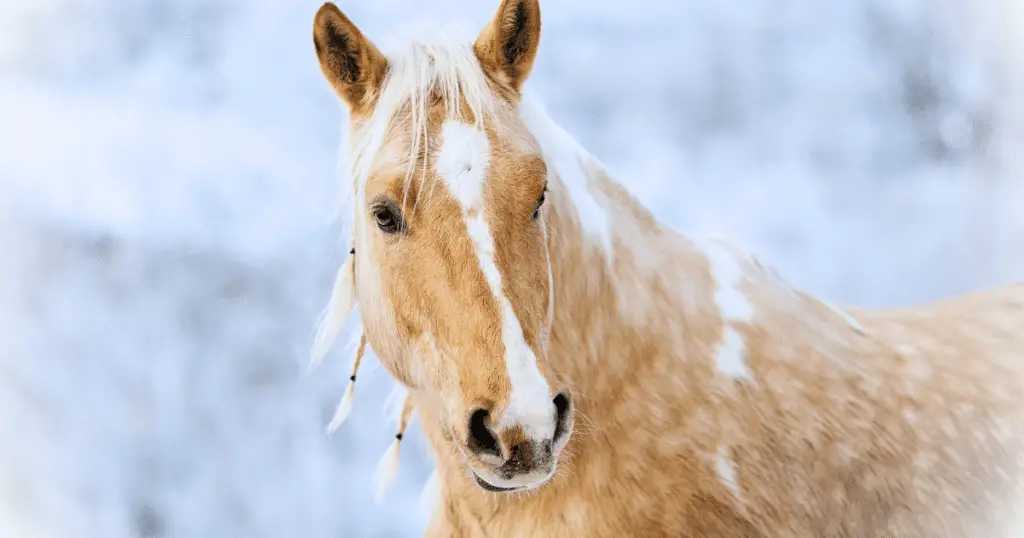My Mare’s Udder Seems Very Small

My mare is pregnant and her udder seems very small. As a horse owner, it is normal to be concerned about the health and well-being of your mare and her unborn foal. A small udder may indicate a lack of milk production, which could lead to complications during the birth and after the foal is born. It is important to monitor and take action to ensure that your mare is healthy and ready to give birth.
First, consult with your veterinarian to determine if the size of your mare’s udder is a cause for concern. The vet may perform an ultrasound to check on the health of the foetus and the development of the udder. If the vet determines that there is a problem, they may recommend a course of action to correct it.
In the meantime, make sure that your mare is getting the proper nutrition and exercise to support a healthy pregnancy. This includes providing her with a balanced diet, regular exercise, and plenty of fresh water. By taking proactive steps to care for your pregnant mare, it can help ensure that she and her foal have a healthy and successful birth.
Why Udder Size Matters
A mare’s udder size can be an important indicator of her pregnancy. The udder is the mammary gland that produces milk for the foal. During pregnancy, the udder undergoes changes in preparation for lactation. It is important to monitor the size and shape of the udder to ensure that the mare is healthy and ready to give birth.
A small udder can be a cause for concern, as it may indicate that the mare is not producing enough milk for the foal. This can lead to complications during birth and can put the foal’s health at risk. It is important to address this issue as soon as possible to ensure a healthy pregnancy and delivery. However, some mares do not get udder development until they are in labour, particularly maiden mares.
There are several factors that can affect udder size, including the mare’s age, breed, and overall health. It is important to consult with a veterinarian to determine the cause of a small udder and develop a plan of action. In some cases, the mare may require additional nutrition or supplements to help increase milk production. or this can just be normal for your mare.
It is also important to note that a large udder does not necessarily indicate a healthy pregnancy. An overly large udder can be a sign of edema or other health issues. It is important to monitor the udder size and consult with a veterinarian if there are any concerns.
Factors Affecting Udder Size
Udder size is an important factor in determining how much milk a mare can produce. However, it’s important to understand that there are several factors that can affect the size of a mare’s udder. Here are a few things to consider:
- Breed: Different breeds of horses have different udder sizes. For example, draft horses tend to have larger udders than Thoroughbreds.
- Age: A mare’s udder will typically increase in size as she gets older and has more foals.
- Stage of Pregnancy: A mare’s udder will begin to grow and fill with milk as she gets closer to giving birth. However, the size of the udder can vary depending on the mare and the stage of pregnancy.
- Nutrition: A mare’s diet plays a crucial role in the size of her udder. A well-fed mare will typically have a larger udder than a malnourished mare.
- Genetics: Just like with humans, genetics can play a role in the size of a mare’s udder. If the mare’s dam had a small udder, it’s possible that the foal will have a small udder as well.
It’s important to keep in mind that the size of a mare’s udder is not always an indication of how much milk she will produce. Other factors, such as the quality of the mare’s milk and her ability to nurse her foal, are also important.
What to Expect During Pregnancy
Each mare’s pregnancy can be unique. However, there are some general things to expect during pregnancy. Here are a few things to keep in mind:
- Weight gain: Your mare will gain weight during pregnancy, typically around 50-100kgs. Make sure you adjust her diet accordingly to provide the necessary nutrients for both her and the foal.Be cautious to not allow too much weight gain as this can lead to large foals and birthing issues also.
- Udder development: As the pregnancy progresses, your mare’s udder will become larger and more developed. However, this may not be the case for every mare. Some mares may have small udders throughout their pregnancy, which is not necessarily a cause for concern.
- Behavior changes: Your mare’s behavior may change during pregnancy. Some mares may become more irritable or restless, while others may become more affectionate. This is normal and should not be a cause for concern unless it becomes extreme.
- Veterinary care: Sometimes veterinary checkups are eimportant during pregnancy to ensure the health of both the mare and the foal. Your veterinarian can provide specific recommendations for your mare’s care based on her individual needs.
Remember, every mare’s pregnancy is different, and it’s essential to monitor your mare’s health closely. If you have any concerns, don’t hesitate to contact your veterinarian.
When to Seek Veterinary Assistance
If you are concerned about your mare’s pregnancy and her udder seems very small, it is important to seek veterinary assistance. It can be difficult to determine when a situation is serious enough to warrant a call to the vet. Here are some signs that indicate it is time to seek veterinary assistance:
- If your mare’s udder remains small and does not show any signs of growth or development, even as the pregnancy progresses and she is close to her due date
- If your mare’s udder becomes swollen, hot to the touch, or painful.
- If your mare shows any signs of discomfort or distress, such as colic, lethargy, or loss of appetite.
- If you notice any discharge from your mare’s udder or vulva.
- If your mare is close to her due date and has not yet shown any signs of labor.
If you notice any of these signs, it is important to contact your veterinarian immediately. They will be able to examine your mare and determine if there is a problem with the pregnancy or udder development. Remember, it is always better to err on the side of caution when it comes to the health of your mare and her unborn foal.
Conclusion
Based on my experience and research, it is important to remember that every mare’s pregnancy is unique and may have its own set of challenges. It is always best to consult with a veterinarian to ensure the health and well-being of the mare and her foal.
While a small udder may be cause for concern, it is not necessarily an indication of a problem with the pregnancy. It is possible for a mare to have a small udder and still produce enough milk for her foal. However, it is important to monitor the mare’s udder and milk production closely after foaling.
It is also important to provide the mare with proper nutrition and care throughout her pregnancy. This includes a balanced diet, regular exercise, and regular veterinary check-ups. By providing the mare with the best possible care, we can help ensure a healthy pregnancy and foal.



